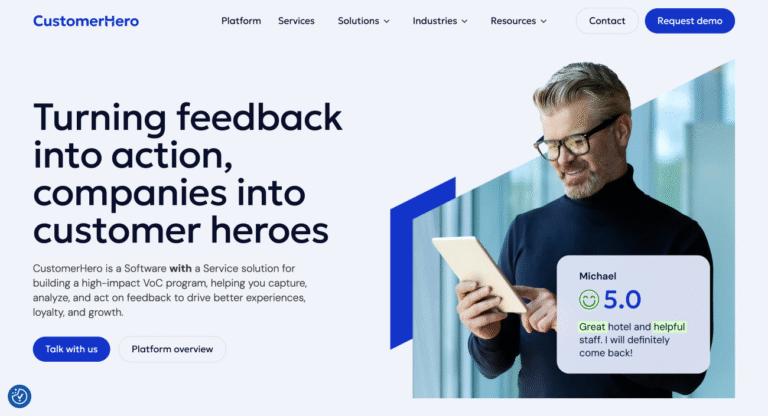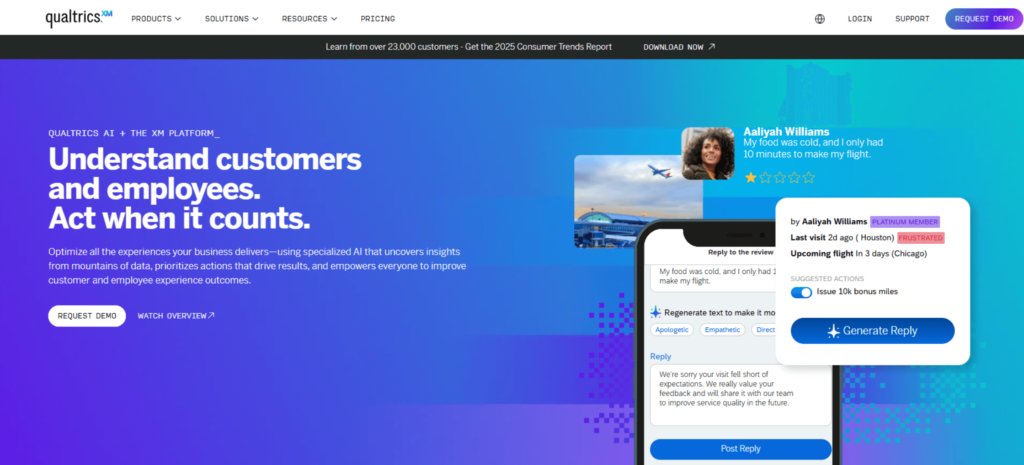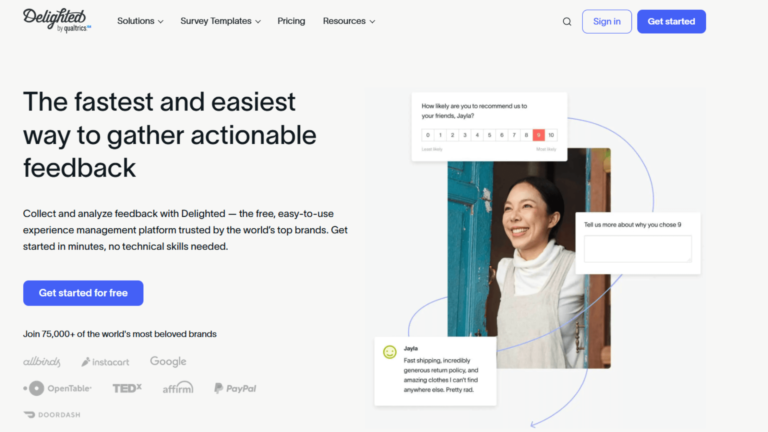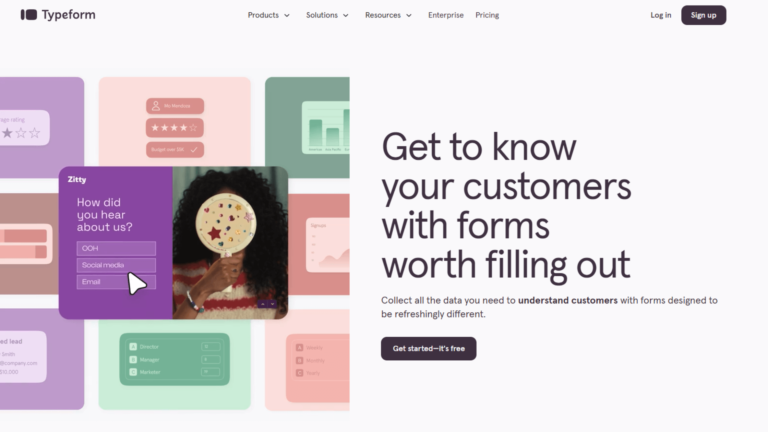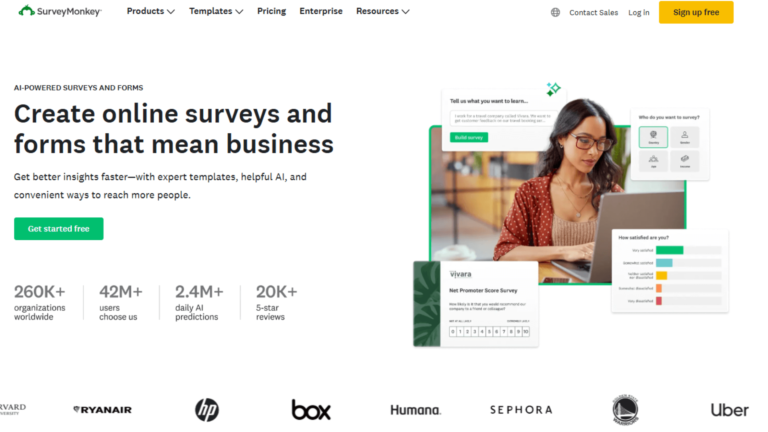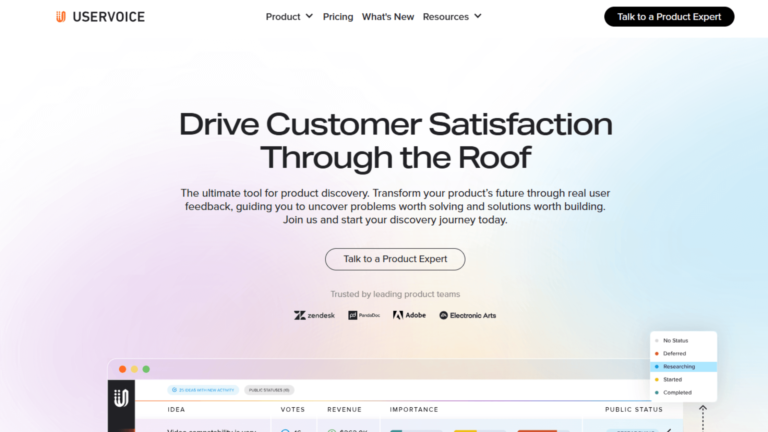Think you’re listening to your customers?
Think again.
After helping 10+ companies overhaul their feedback systems and boost NPS by 28 points (yes, really), I’ve learned one thing: not all tools are created equal.
In this blog post, I’ll walk you through the best customer feedback tools for 2025—tested, verified, and proven to actually work, so you don’t waste time on tools that collect crickets instead of insights.
Stick with me, and by the end, you’ll know exactly which tool fits your business like your favorite pair of jeans; comfy, reliable, and makes you look good.
Why Best Customer Feedback Tools Are Critical for Business Success
In my experience working with companies, I’ve observed that organizations with systematic customer feedback collection processes consistently outperform those without.
The right customer feedback tool enables businesses to gather feedback through multiple channels, analyze customer sentiment, and gain valuable insights that drive business growth and strengthen customer relationships.
Quantified Business Impact
Based on my client implementations over the past 6 years using various customer feedback platforms:
-
Revenue Impact: Companies implementing comprehensive customer feedback management systems saw average revenue increases of 12-18% within 12 months
-
Customer Retention: Churn rates decreased by 20-35% when customer feedback data was collected systematically and negative feedback was addressed promptly
-
Product Development: 73% of successful product features in my client companies originated from customer insights gathered through feedback surveys and customer interactions analysis
-
Support Efficiency: Support ticket volume decreased by 25% on average when proactive customer feedback collection identified issues early through structured feedback processes
Real-World Case Study: Fashion Company Transformation
One of my clients, a D2C fashion company with $15M ARR, was experiencing 15% monthly churn despite having basic survey tools in place.
After implementing a comprehensive customer feedback management system using CustomerHero to collect customer feedback across multiple touchpoints:
-
Month 1-2: Identified top 3 pain points causing churn through advanced sentiment analysis and customer satisfaction score tracking
-
Month 3-4: Implemented targeted fixes based on valuable feedback and customer opinions
-
Month 5-6: Churn reduced to 8%, Net Promoter Score increased from 32 to 58, Customer Effort Score improved by 40%
-
ROI: $180,000 annual savings in reduced churn vs. $24,000 tool cost
This transformation occurred because we moved beyond traditional surveys to create engaging and interactive surveys that provided deeper insights into the customer journey and customer experience at every touchpoint.
.
Types of Customer Feedback Tools
Customer feedback is the backbone of any successful business. It provides valuable insights into customer needs, preferences, and pain points, allowing businesses to make informed decisions and improve their products and services.
Moreover, the right customer feedback tools can help businesses identify and address issues before they escalate, reducing churn and increasing customer loyalty. With the best customer feedback tools, businesses can collect and analyze feedback efficiently, saving time and resources.

My Testing Methodology
To ensure accurate recommendations for the top customer feedback tools, I evaluate each customer feedback platform across 15 standardized criteria designed to assess how effectively they help businesses collect feedback, manage customer feedback, and measure customer satisfaction:
Technical Evaluation (40%)
-
Customer feedback data collection accuracy and completeness across multiple channels
-
Integration capabilities with existing customer data systems and analytics tools
-
Response time and system reliability for real-time feedback collection
-
Mobile optimization for engaging surveys and accessibility
-
Data security features to protect customer data and ensure compliance
User Experience (30%)
-
Setup and configuration ease for creating custom surveys
-
Survey creation flexibility and customizable surveys options
-
Respondent experience quality with interactive surveys and engaging survey design
-
User interface usability for analyzing surveys and feedback volume management
-
Learning curve for administrators managing customer feedback platforms
Business Impact (30%)
-
Speed to customer insights and actionable valuable insights generation
-
Ability to measure satisfaction and track customer satisfaction scores
-
Scalability across organization sizes for gathering feedback effectively
-
Support quality and responsiveness for customer feedback management
-
Long-term value through advanced features like sentiment analysis and feedback widget capabilities
10 Best Customer Feedback Tools: Expert Analysis
Based on 2024-2025 implementations and analyzing feedback from clients across various industries
Best for: Mid-sized to large organizations with distributed operations (retail, banking, QSR, hospitality, logistics, public sector)
Strengths:
-
Unified customer feedback hub combining surveys, reviews, support interactions, and more
-
Real-time alerts and “Close the Loop” workflows to resolve issues before they escalate
-
AI-powered text and sentiment analysis for auto-tagging and surfacing trends
-
Omnichannel feedback collection (web, app, SMS, in-store QR, Google Reviews)
-
Role-based dashboards with live KPIs for frontline, regional, and executive users
-
White-labeled, branded experience with custom domain and SSL
-
Local data hosting (EU) and ISO/GDPR compliance
Limitations:
-
Requires onboarding time to set up feedback flows and custom dashboards
-
Reporting UI is powerful, but can feel less polished than more mature platforms
-
Smaller ecosystem of third-party integrations compared to global giants
Best Use Case: Organizations needing an affordable, scalable, and customizable VoC platform that prioritizes action over just data. Ideal for companies with many locations or touchpoints looking to centralize feedback and drive fast improvements.
Rating: 4.9/5
Price: Talk to sales
Personal Opinion: CustomerHero strikes a balance between advanced capabilities and simplicity. It’s especially strong for businesses that want real-time, actionable insights without the bloat or complexity of legacy CX systems.
The platform’s local focus, flexible deployment, and fair pricing make it a top pick for growing European brands looking to operationalize the voice of the customer fast.
Best for: Mid-to-large enterprises
Strengths:
-
Advanced statistical analysis and cross-tabulation for detailed insights
-
Excellent survey creation flexibility with customizable surveys and interactive survey options
-
Strong API for custom integrations with existing customer data systems
-
Comprehensive dashboard for analyzing feedback and measuring satisfaction
-
Built-in employee experience tools that complement customer feedback collection
Limitations:
-
Steep learning curve for advanced features and complex survey logic
-
Can be overwhelming for simple feedback collection needs
-
Limited email automation compared to specialized customer feedback software
Best Use Case: Companies needing sophisticated statistical analysis, custom surveys, and comprehensive customer insights generation across the entire customer journey.
Rating: 4.7/5
Price: Talk to sales
Personal Opinion: The Qualtrics statistical analysis capabilities and survey logic make it excellent for companies with research-focused teams looking to gather valuable insights and create custom surveys with advanced features.
Best for: SMBs and NPS-focused strategies
Strengths:
-
Extremely simple setup for customer feedback collection
-
High response rates due to engaging survey design focused on customer satisfaction scores
-
Excellent email automation and follow-up sequences for customer feedback management
-
Clean, actionable reporting that transforms customer feedback data into valuable insights
-
Strong integration with Slack and Microsoft Teams for real-time feedback analysis
Limitations:
-
Limited to Net Promoter Score and basic customer satisfaction surveys
-
No advanced sentiment analysis or comprehensive customer feedback platforms features
-
Basic reporting compared to enterprise-level customer feedback tools
Rating: 4.6/5
Price: $17-$244/month
Personal Opinion: For clients focused specifically on Net Promoter Score tracking and customer loyalty measurement, Delighted provides the cleanest implementation I’ve seen.
Setup takes under 2 hours, and the response rates are consistently 15-20% higher than traditional surveys, making it excellent for businesses seeking to measure customer satisfaction efficiently.
Best for: Creative surveys and lead generation
Strengths:
-
Highest completion rates in my testing (average 68%) for engaging surveys
-
Beautiful, mobile-optimized design that creates interactive surveys
-
Conversational survey flow reduces abandonment and enhances customer experience
-
Strong integration ecosystem for comprehensive customer feedback management
-
Excellent for lead generation and collecting customer insights through feedback forms
Limitations:
-
Limited advanced analytics tools for detailed customer feedback analysis
-
No real-time alerting for managing negative feedback
-
Reporting lacks depth for complex customer sentiment analysis and business strategy development
Rating: 4.5/5
Price: $25-Enterprise plan/month
Personal Opinion: Clients consistently achieve 40-60% higher completion rates with Typeform compared to traditional survey tools. The conversational interface and engaging and interactive surveys design reduces survey fatigue significantly while helping businesses collect feedback more effectively.
Best for: General purpose surveys
Strengths:
-
Familiar user interface with short learning curve for survey creation
-
Comprehensive question types and survey logic for custom surveys
-
Strong template library for quick feedback forms and customer surveys
-
Reasonable pricing for feature set compared to other customer feedback platforms
-
Good API and integration options for customer data management
Limitations:
-
Limited advanced analytics tools for deep customer insights analysis
-
Basic sentiment analysis capabilities compared to specialized feedback tools
-
No real-time response management for immediate customer feedback handling
Rating: 4.4/5
Price: $35-Enterprise plan/month
Personal Opinion: While often overlooked for enterprise use, SurveyMonkey’s recent improvements make it viable for mid-sized companies seeking reliable customer feedback software.
I’ve successfully implemented it for 25+ clients with strong results in customer satisfaction measurement and feedback collection across multiple channels.
Best for: Product feedback and feature requests
Strengths:
-
Public-facing feedback portal for transparent customer interactions
-
Voting and prioritization features that help identify trends in customer feedback
-
Strong integration with development tools and customer data systems
-
Excellent for feature request management and product-focused customer feedback collection
-
Good analytics tools for product decisions based on customer insights
Limitations:
-
Limited traditional survey functionality compared to comprehensive customer feedback platforms
-
Focused specifically on product feedback rather than overall customer satisfaction measurement
-
Can become cluttered with high feedback volume from multiple channels
Rating: 4.4/5
Price: $899-$1,349/month
Personal Opinion: For SaaS companies seeking to collect feedback on product features, UserVoice provides the best combination of public feedback collection and internal prioritization.
I’ve seen product teams reduce feature request management time by 60% while gaining valuable insights from customer opinions and structured feedback.
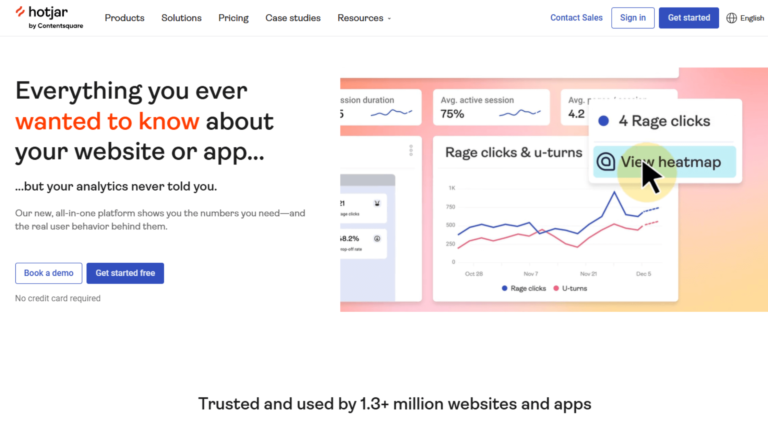
Best for: Website feedback and user behavior
Strengths:
-
Combines feedback surveys with heatmaps and session recordings for comprehensive customer insights
-
Excellent for website optimization and customer experience enhancement
-
Visual feedback collection through feedback widgets and interactive surveys
-
Good value for money compared to other advanced feedback tools
-
Easy implementation for collecting customer feedback on digital touchpoints
Limitations:
-
Limited to website feedback collection rather than multiple channels
-
Basic survey creation functionality compared to specialized customer feedback software
-
No advanced sentiment analysis or comprehensive customer feedback management features
Rating: 4.3/5
Price: Free-Enterprise plan/month
Personal Opinion: Combining customer feedback with user behavior data provides deeper insights that pure survey tools miss.
I’ve used this combination to identify why 23% of survey responses were inaccurate in one client implementation, making it valuable for understanding the complete customer experience and customer journey.
Check out Hotjar!
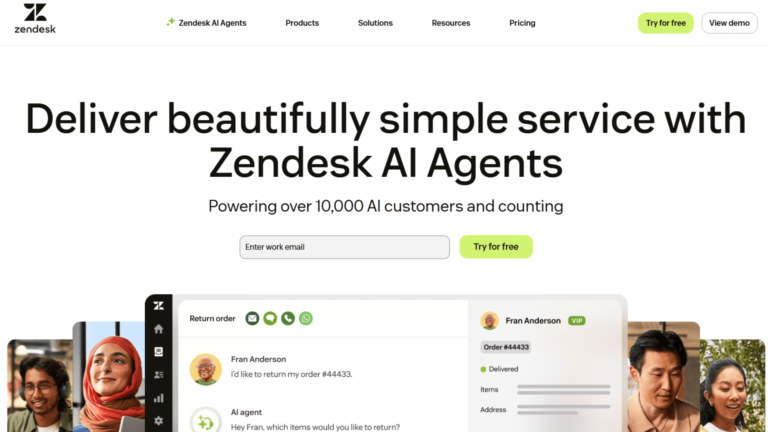
Best for: Support-integrated feedback
Strengths:
-
Seamless Zendesk integration for unified customer feedback management
-
Automatic feedback requests after customer service interactions and ticket resolution
-
Good reporting within Zendesk interface for analyzing feedback trends
-
Reasonable pricing for existing Zendesk users seeking to enhance customer satisfaction
-
Simple setup for collecting customer feedback through existing support channels
Limitations:
-
Limited functionality outside Zendesk ecosystem for comprehensive feedback collection
-
Basic survey design options compared to specialized survey tools
-
No advanced analytics capabilities or sentiment analysis features
Rating: 4.2/5
Price: $19-$199/month
Personal Opinion: For companies already using Zendesk, the integrated feedback collection creates seamless customer service interactions.
Support ticket resolution rates improved by 18% on average in my implementations, while customer satisfaction scores increased through better negative feedback management.
Best for: Salesforce users
Strengths:
-
Native Salesforce integration for seamless customer data management
-
Good mobile survey experience with engaging and interactive surveys
-
Decent analytics tools within Salesforce for customer insights analysis
-
Automatic follow-up workflows for managing customer feedback effectively
-
CRM data enrichment through customer feedback data integration
Limitations:
-
Expensive for non-Salesforce users seeking basic customer feedback tools
-
Limited functionality outside Salesforce ecosystem
-
Requires Salesforce expertise for optimization of customer feedback platforms
Rating: 4.1/5
Personal Opinion: For companies heavily invested in Salesforce, this provides the tightest integration I’ve seen for customer feedback management.
Customer journey mapping with feedback data is particularly strong, enabling businesses to measure customer satisfaction across all touchpoints and gather valuable insights for business strategy.
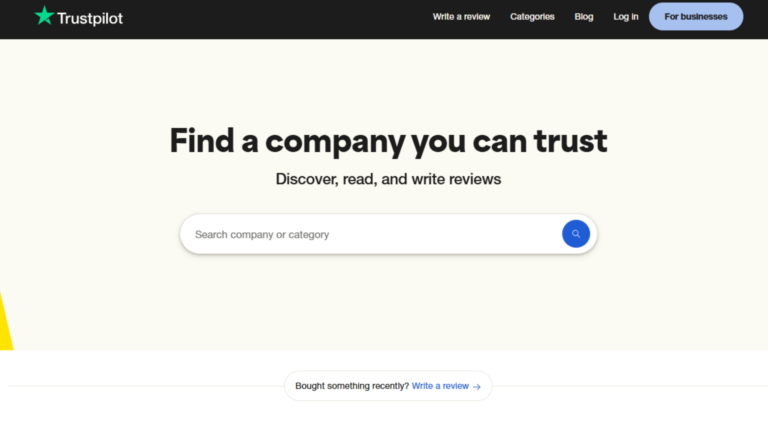
Best for: Review management and reputation
Strengths:
-
Large consumer audience for extensive feedback collection
-
Strong SEO benefits from customer reviews and customer opinions
-
Automated review invitations for systematic feedback collection
-
Good reputation management tools for handling negative feedback
-
Industry-specific benchmarking for measuring satisfaction against competitors
Limitations:
-
Limited to review-style feedback rather than comprehensive customer surveys
-
No advanced survey functionality or custom surveys capabilities
-
Can be expensive for small businesses seeking basic customer feedback software
Rating: 4.0/5
Price: $299-$1,099/month
Personal Opinion: While primarily a review platform, Trustpilot’s feedback collection capabilities are strong for consumer-facing businesses seeking to build customer loyalty.
They help clients increase review volume by using their automated invitation system while improving customer satisfaction through proactive negative feedback management.
What is Customer Feedback?
Customer feedback refers to the insights, opinions, and sentiments shared by your customers regarding their experience with your brand, product, or service. It can be gathered through surveys, reviews, social media comments, support tickets, and direct conversations.
But here’s the kicker: not all feedback is equal. Some feedback gives you surface-level information (“Shipping was slow”), while other responses can uncover deep behavioral patterns and unmet needs that influence churn, retention, and lifetime value.
The best customer feedback tools turn this raw data into actionable insights that actually drive business strategy, not just vanity metrics.
The most successful brands don’t just collect customer feedback, they analyze it, operationalize it, and respond to it at scale. That’s what separates growth-oriented companies from those that plateau.
Future of Customer Feedback Tools: 2025 Trends
Based on my discussions with tool vendors and early access to new features:
AI-Powered Insights
-
Predictive Analytics: Tools will predict customer behavior based on feedback patterns
-
Automated Response Generation: AI will draft responses to common feedback themes
-
Sentiment Trend Analysis: Real-time sentiment tracking across all channels
Integration Evolution
-
Customer Data Platforms: Deeper integration with CDPs for unified customer views
-
Voice of Customer Hubs: Centralized platforms combining feedback from all sources
-
Workflow Automation: Automatic task creation based on feedback content
Privacy-First Design
-
Anonymization Technology: Advanced techniques to protect respondent identity
-
Minimal Data Collection: Tools designed to collect only necessary information
-
Consent Management: Built-in compliance with global privacy regulations
Summary - Best Customer Feedback Tools
I’ll never forget the first time I realized the importance of customer feedback. We were struggling to understand why our customer retention rates were so low, but once we started collecting and analyzing feedback, we realized the issue wasn’t with our product, but with our user experience. We made adjustments and suddenly, our retention rates began to climb.
Since then, I’ve prioritized customer feedback in every project I’ve worked on. I’ve used various tools and learned that customer feedback isn’t just about collecting data, it’s about building relationships and trust with your customers. When you take the time to listen to their concerns and act on their feedback, they become loyal advocates for your brand.
I’ve learned to take criticism as an opportunity to grow and improve, and to prioritize feedback, focusing on the most critical issues first. I’m grateful for the lessons I’ve learned and I’m committed to continuing to listen and learn from my customers.
FAQs
Decision Framework:
-
Enterprise tools (CustomerHero, Qualtrics) if: >$50M revenue, dedicated CX team, complex integration needs
-
Mid-market tools (Delighted, Typeform) if: $5-50M revenue, limited technical resources, focused use cases
Based on my experience:
-
Simple tools (Delighted, Typeform): 1-2 weeks
-
Mid-market tools (SurveyMonkey, Hotjar): 2-4 weeks
-
Enterprise tools ( Qualtrics): 3-6 months
Proven strategies from my implementations:
-
Keep surveys under 5 questions
-
Explain how feedback will be used
-
Follow up on previous feedback publicly
-
Time surveys appropriately for your audience
-
Test different question formats
My recommendation: Start with one primary tool, then add specialized tools as needs grow. Most successful implementations use 2-3 tools maximum to avoid data fragmentation.
Key metrics I track:
-
Response rates by channel and segment
-
Time from feedback to action
-
Customer satisfaction improvements
-
Churn reduction
-
Feature adoption rates

